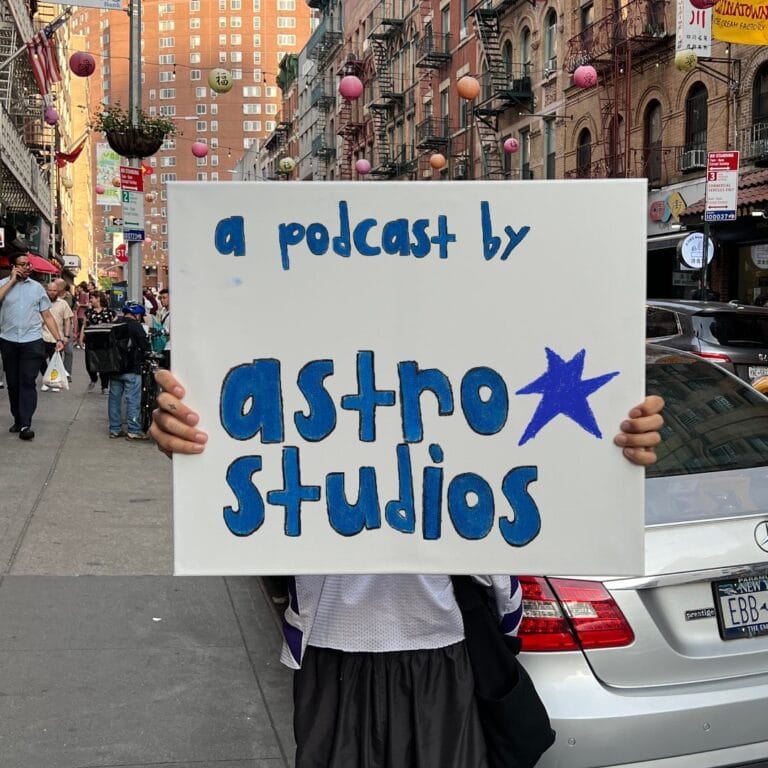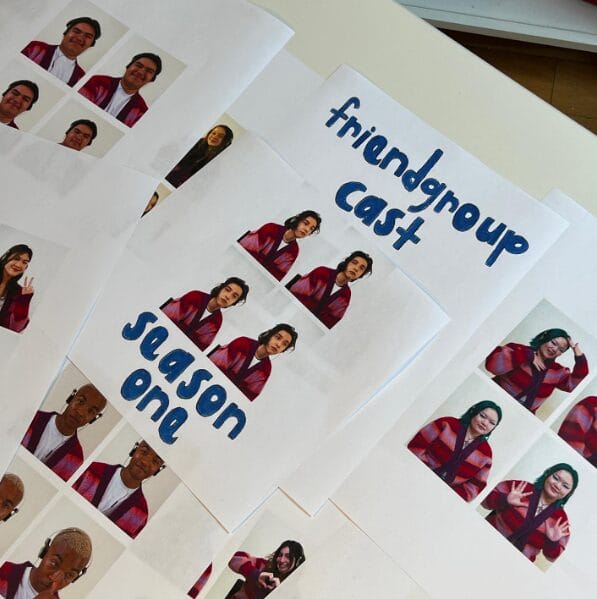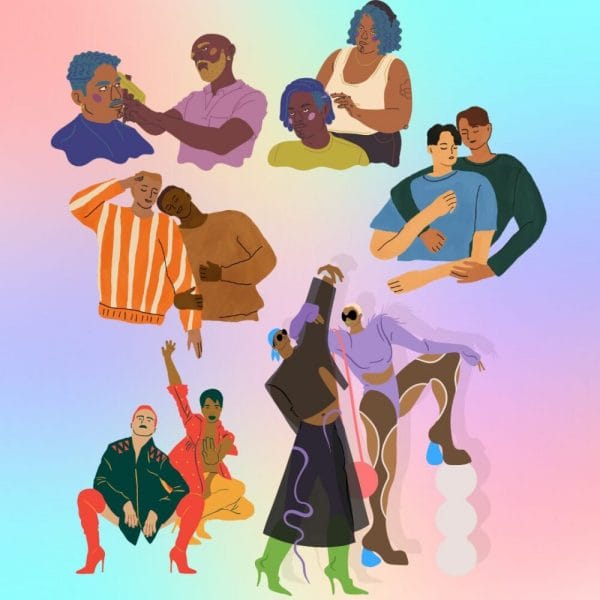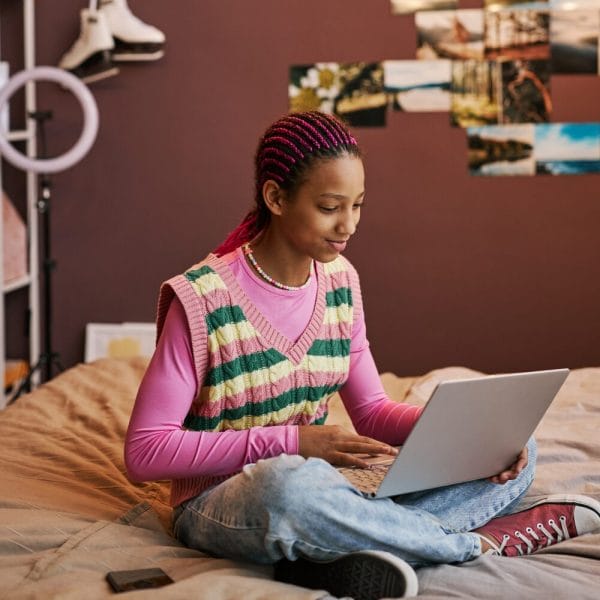Teenagers today are increasingly seeking mental health support from friends, family, digital platforms, and social media, instead of traditional resources such as therapists and counselors. This trend stems from various challenges, including high costs, a lack of diversity in caregivers, and an overloaded health care system. Reflecting on my teenage years from 2015 to 2023, I witnessed a significant shift. We used social media platforms like YouTube, Tumblr, and TikTok not just for entertainment but also for comfort, community, and resources during tough mental health phases. However, as the internet and social media mature and lose their original novelty, teenagers find themselves deeply isolated in an increasingly online world. We must continue to build infrastructure that accounts for how modern teens care for their mental health. This begins with acknowledging that the digitally native generation yearns not only for online resources but also for face-to-face support, and we must create the necessary infrastructure to support that need.
Creating alternative forms of mental health support
As a digital native who was active on social platforms from a young age, I saw how teens are creating accounts to share memes, videos, and blogs while creating healing communities that speak to their tribe. These accounts are often not directly mental health-focused but built around shared interests. For example, accounts dedicated to music artists, TV shows, or even niche interests like chicken nuggets that look like animals serve a bigger purpose when you look closer. Behind these accounts, struggling teens often repost content while using the descriptions to rant about their mental health struggles. An army of teens keeps the conversation going by sharing their own experiences in the comment section. Storytelling and community building through unconventional means are fundamental components of how modern teens address their mental health needs. In 2018, I created the “Teenager Therapy” podcast, which quickly became the world’s #1 youth mental health podcast, with over one million followers and 14 million streams. While not traditional therapy, my group of friends and I spent four years recording episodes documenting the raw and vulnerable conversations we had during our coming-of-age. Episodes titled “Listen when you feel alone” still garner over 300k streams years after their release, proving a strong demand for comforting mental health content — an alternative, supportive tool different from traditional online therapy. Current data supports this observation: Young adults (ages 18 to 22) are more likely than teens (ages 14 to 17) to enact strategies to avoid content they dislike (81% vs 68%) and curate their feed (71% vs. 61%). This raises questions about barriers to accessing mental health support among this demographic and points to opportunity areas where young adults might need mental health tools/supports that are different from traditional methods.
Shared experiences create community
In 2023, I took the concept behind “Teenager Therapy” a step further by launching Astro Studios, a creative company leveraging media and in-person discussion groups to support youth mental well-being and drive the creation of third places. Inspired by our childhood comfort shows, we hope to build “the Sesame Street” for teenagers and utilize media to provide accessible and unconventional mental health support for young people that serves a range of identities. Our debut show, “Friendgroup,” draws inspiration from traditional therapy’s most impactful moments — those that come from a thoughtful question or story that shifts perspective. Throughout each season, the show focuses on one common youth issue and offers diverse viewpoints from young people with similar experiences, helping listeners find new ways to approach their own challenges. Our goal is to shift the focus from celebrities, influencers, and anchor hosts, and instead pass the mic to young people with powerful lived experiences.

Photo credit: Friendgroup Instagram
The significance of identity and representation cannot be overstated, especially for marginalized identities such as LGBTQ+ teens. Digital platforms are crucial for these young people to find community and support that affirm their identities. According to The Trevor Project’s 2023 survey, nearly three-quarters of LGBTQ+ youth value these platforms for reducing feelings of loneliness and to seek information on their own identity. For many LGBTQ+ teens, online spaces provide an opportunity to connect with and find support from people who share their experiences when they’re unable to get it from their community. It is with this belief in mind that we create our shows, ensuring that marginalized youth have somewhere to turn when looking for their tribe.

Photo credit: Friendgroup Instagram
The importance of in-person community
Recognizing the loneliness epidemic that youth are facing, we are building the infrastructure to encourage teens to connect with their communities in the physical world. The lack of third spaces has sparked significant interest among Gen Z, yet there are still few addressing this need. While many companies are building in this space, the lack of innovation has left us with inaccessible and unaffordable concepts that largely focus on co-working. We are changing this by focusing on a fun-first approach, building with age limits in mind, and thinking about the role of hosts in the space. Just as the tightest digital communities are not initially about mental health, we believe these spaces should focus on memorable experiences and make mental health support a byproduct, not the initial appeal. Making youth excited to return is key as consistency is crucial to developing true connections and community. In short, we’re building the gym before the personal training curriculum.
Given the limitations of the current mental health care system to meet the needs of millions of teens, we are committed to finding youth-led and innovative ways to provide the necessary tools to support youth mental well-being. Investing in alternative mental health support is essential. By understanding and addressing the unique experiences of young people, especially those from diverse backgrounds, we can begin to build systems that are effective and inclusive. We need to listen to young people when they tell us how they use social media for support, information, and inspiration. We must also support alternative approaches to healing by focusing on the importance of community and identity representation in the physical world as well.
About the author:

Gael Aitor, Podcaster & Mental Health Advocate
Gael Aitor is the creator and host of the “Teenager Therapy” podcast, a teen mental health podcast with over 1,000,000 followers. Previous guests of “Teenager Therapy” include Prince Harry and Meghan Markle, Adam Mosseri, and Loren Gray. Aitor is also the founder of Astro Studios – a podcast studio focused on audio content for Gen Z. He has been featured in The New York Times, Teen Vogue, and the TIME100 Talks for his work at “Teenager Therapy.” He graduated from high school in 2021.





